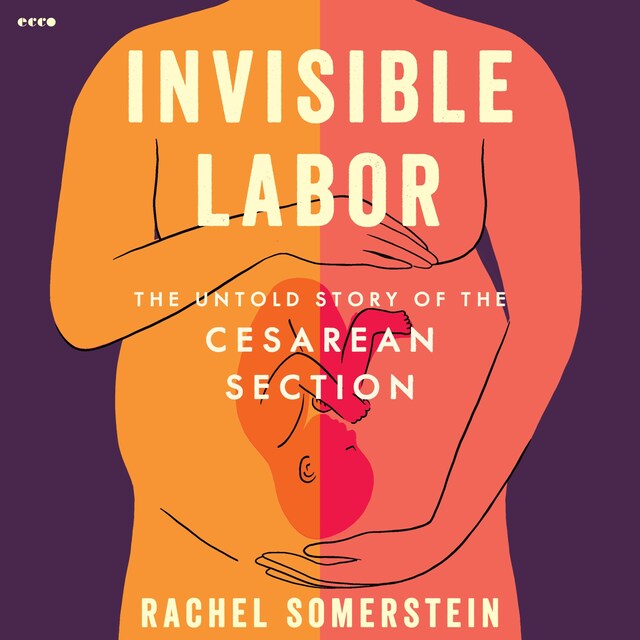
Upcoming audiobook
6/4/2024Invisible Labor
The Untold Story of the Cesarean Section
Description of book
An incisive yet personal look at the science and history of the most common surgery performed in America—the cesarean section—and an exposé on the disturbing state of maternal medical care
When Rachel Somerstein had an unplanned C-section with her first child, the experience was anything but “routine.” A series of errors by her clinicians led to a real-life nightmare: surgery without anesthesia. The ensuing mental and physical complications left her traumatized and searching for answers about how things could have gone so wrong.
In the United States, one in three babies is born via C-section, a rate that has grown exponentially over the past fifty years. And while in most cases the procedure is safe, it is not without significant, sometimes life-changing consequences, many of which affect people of color disproportionately. With C-sections all but invisible in popular culture and pregnancy guides, new mothers are often left to navigate these obstacles on their own.
In Invisible Labor, Somerstein weaves personal narrative and investigative journalism with medical, social, and cultural history to reveal the operation’s surprising evolution, from its early practice on enslaved women to its excessive promotion by modern medical practitioners. She uncovers the current-day failures of the medical system, showing how pregnant women's agency is regularly disregarded by providers who, motivated by fear of litigation or a hospital’s commitment to efficiency, make far-reaching and deeply personal decisions on behalf of their patients. She also examines what prevailing maternal and medical attitudes toward C-sections tell us about American culture.
Candid, raw, and illuminating, Invisible Labor lifts the veil on C-sections so that people can make choices about pregnancy and surgical birth with greater knowledge of the risks, benefits, and alternatives. With deep feeling and authority, Somerstein offers support to others who have had difficult or traumatic birth experiences, as well as hope for new forms of reproductive justice.
When Rachel Somerstein had an unplanned C-section with her first child, the experience was anything but “routine.” A series of errors by her clinicians led to a real-life nightmare: surgery without anesthesia. The ensuing mental and physical complications left her traumatized and searching for answers about how things could have gone so wrong.
In the United States, one in three babies is born via C-section, a rate that has grown exponentially over the past fifty years. And while in most cases the procedure is safe, it is not without significant, sometimes life-changing consequences, many of which affect people of color disproportionately. With C-sections all but invisible in popular culture and pregnancy guides, new mothers are often left to navigate these obstacles on their own.
In Invisible Labor, Somerstein weaves personal narrative and investigative journalism with medical, social, and cultural history to reveal the operation’s surprising evolution, from its early practice on enslaved women to its excessive promotion by modern medical practitioners. She uncovers the current-day failures of the medical system, showing how pregnant women's agency is regularly disregarded by providers who, motivated by fear of litigation or a hospital’s commitment to efficiency, make far-reaching and deeply personal decisions on behalf of their patients. She also examines what prevailing maternal and medical attitudes toward C-sections tell us about American culture.
Candid, raw, and illuminating, Invisible Labor lifts the veil on C-sections so that people can make choices about pregnancy and surgical birth with greater knowledge of the risks, benefits, and alternatives. With deep feeling and authority, Somerstein offers support to others who have had difficult or traumatic birth experiences, as well as hope for new forms of reproductive justice.
Categories:
Format:
Language:
English


